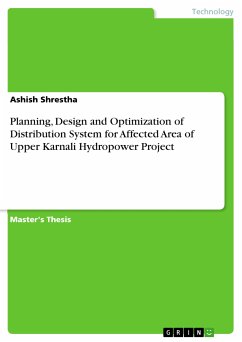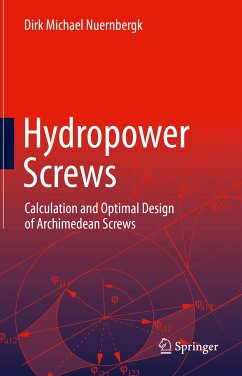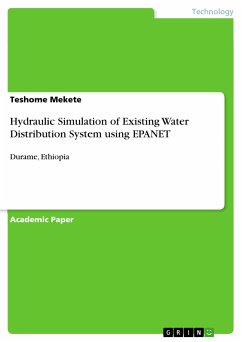
Planning, Design and Optimization of Distribution System for Affected Area of Upper Karnali Hydropower Project (eBook, PDF)
Sofort per Download lieferbar
Statt: 29,99 €**
19,99 €
inkl. MwSt. und vom Verlag festgesetzt.
**Preis der gedruckten Ausgabe (Broschiertes Buch)
Weitere Ausgaben:

PAYBACK Punkte
0 °P sammeln!
Master's Thesis from the year 2017 in the subject Engineering - Mechanical Engineering, grade: 4, Kathmandu University (School of Engineering), course: Masters' Program in Planning and Operation of Energy System, language: English, abstract: This study illustrates the best approach for energy access to the affected area of a 900 MW Upper Karnali Hydropower Project (UKHPP) located in Western Nepal. As per concession agreement executed between the developer of UKHPP and the Government of Nepal, the developer will develop 2 MW power plant at the toe of the dam using the environmental release disc...
Master's Thesis from the year 2017 in the subject Engineering - Mechanical Engineering, grade: 4, Kathmandu University (School of Engineering), course: Masters' Program in Planning and Operation of Energy System, language: English, abstract: This study illustrates the best approach for energy access to the affected area of a 900 MW Upper Karnali Hydropower Project (UKHPP) located in Western Nepal. As per concession agreement executed between the developer of UKHPP and the Government of Nepal, the developer will develop 2 MW power plant at the toe of the dam using the environmental release discharge to electrify the affected area of UKHPP. First, the study looks at the optimization of the electric grid network in the project affected area, using Kruskal's algorithm. The optimization is carried out so that access to electricity is guaranteed to possible load centers in the affected area to the extent possible in technical and financial feasible manner. This study is an attempt to connect the possible load centers through an optimum network design based on demography, topography, technical feasibility and socio-economic factors. The study focuses on the design of the electrical network based on a least distance path between the identified nodes. The designed network is based on the survey using GIS, Topographical maps, and satellite views from Google map. A total of 57 load centers are identified connected through a grid 144.59 km in length. Similarly, taking n=4 sample, the total length of 220V distribution system is estimated to be 417.24 km. After that, the study focuses on the Static Load Flow Analysis (SLFA) by developing a framework based on Conventional Newton- Raphson method to analyze the network's parameters. The result obtained from the analysis is compared with the results of standard 33-bus radial feeder system and forward/backwards (f/b) sweep based algorithm using statistical analysis. The standard error is accepted for the 95% level of significance. It is concluded that, the load flow analysis (LFA) of the primary distribution in this study conducted using the N-R method was adequate and best fit for a grid-like network with medium voltage level. The estimated losses are low and under the limit (i.e. 2.04%) which shows that the designed system performs adequately. From the analysis, it is found that, the pre-defined generation of 2 MW power is insufficient to electrify the whole affected area of the UKHPP. Different alternative ways are recommended to manage the load and provide electricity to the people of the affected area.
Dieser Download kann aus rechtlichen Gründen nur mit Rechnungsadresse in A, B, BG, CY, CZ, D, DK, EW, E, FIN, F, GR, HR, H, IRL, I, LT, L, LR, M, NL, PL, P, R, S, SLO, SK ausgeliefert werden.













